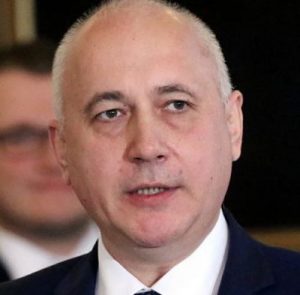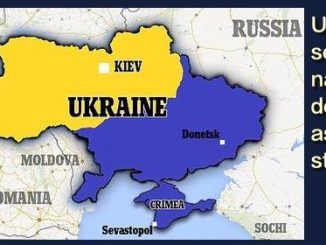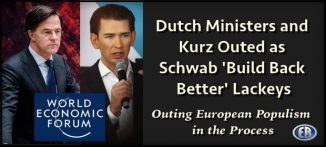
Austria, Poland and Denmark may soon withdraw from UN Global Compact
Austria, Poland and Denmark may soon join Hungary and the United States in withdrawing from a pivotal UN agreement on open borders.
FREEWEST MEDIA
VIENNA – The Chancellor of Austria Sebastian Kurz, speaking after a cabinet meeting, said that his country may leave the UN Global Compact for Safe, Orderly and Regular Migration.
Kurz added that the Danish government has expressed similar concerns over the agreement. Poland too, is preparing to quit the agreement over security concerns.
At a press conference Wednesday, Kurz cited concerns over sovereignty issues in the Global Compact, because it claims that mass migrant floods across borders are “inevitable, necessary, and desirable”.
Reuters reported that the Chancellor has vowed to safeguard Austria’s borders. “We view some of the points in this agreement very critically. We will therefore do everything to maintain the sovereignty of our country and ensure that we as the Republic of Austria can decide for ourselves on migration issues,” Kurz said.
Austria’s Vice-chancellor and leader of the Freedom Party, Heinz-Christian Strache (see featured image), also commented on the Global Compact. He said the government will be evaluating the legal implications of the document.
“It cannot … be that any formulations are adopted that could perhaps or possibly be interpreted to mean that migration can be a human right. That can and must not be the case,” he noted.
 Kurz’s misgiving echoed that of Poland’s Interior Minister Joachim Brudzinski (pictured), who said earlier this week that he would recommend that Warsaw quit the globalist agreement.
Kurz’s misgiving echoed that of Poland’s Interior Minister Joachim Brudzinski (pictured), who said earlier this week that he would recommend that Warsaw quit the globalist agreement.
“The draft of the agreement does not contain adequately strong guarantees of [nations’] sovereign right to decide who comes into their territory and [nor does it] distinguish between legal and illegal migration,” Brudzinski said.
“We want Poles to be safe in their country,” he added saying that security was the government’s ultimate priority.
Viktor Orban, Hungarian Prime Minister (pictured) explained earlier that the “dangerous” Global Compact was in  fact directly inspired by George Soros. “It looks as if it was copied from the Soros Plan: in spirit it’s exactly the same.”
fact directly inspired by George Soros. “It looks as if it was copied from the Soros Plan: in spirit it’s exactly the same.”
“Principles are being formulated which, for example, raise the possibility of lighter penalties for illegally crossing borders, or propose that every country in the world simplifies and accelerates administrative procedures – in other words, that we reduce the screening of foreigners who want to enter into our countries – or that NGOs should participate in these procedures,” Orban told Kossuth Rádió in February.
CONTINUE READING HERE
ER recommends other articles by FreeWest Media




